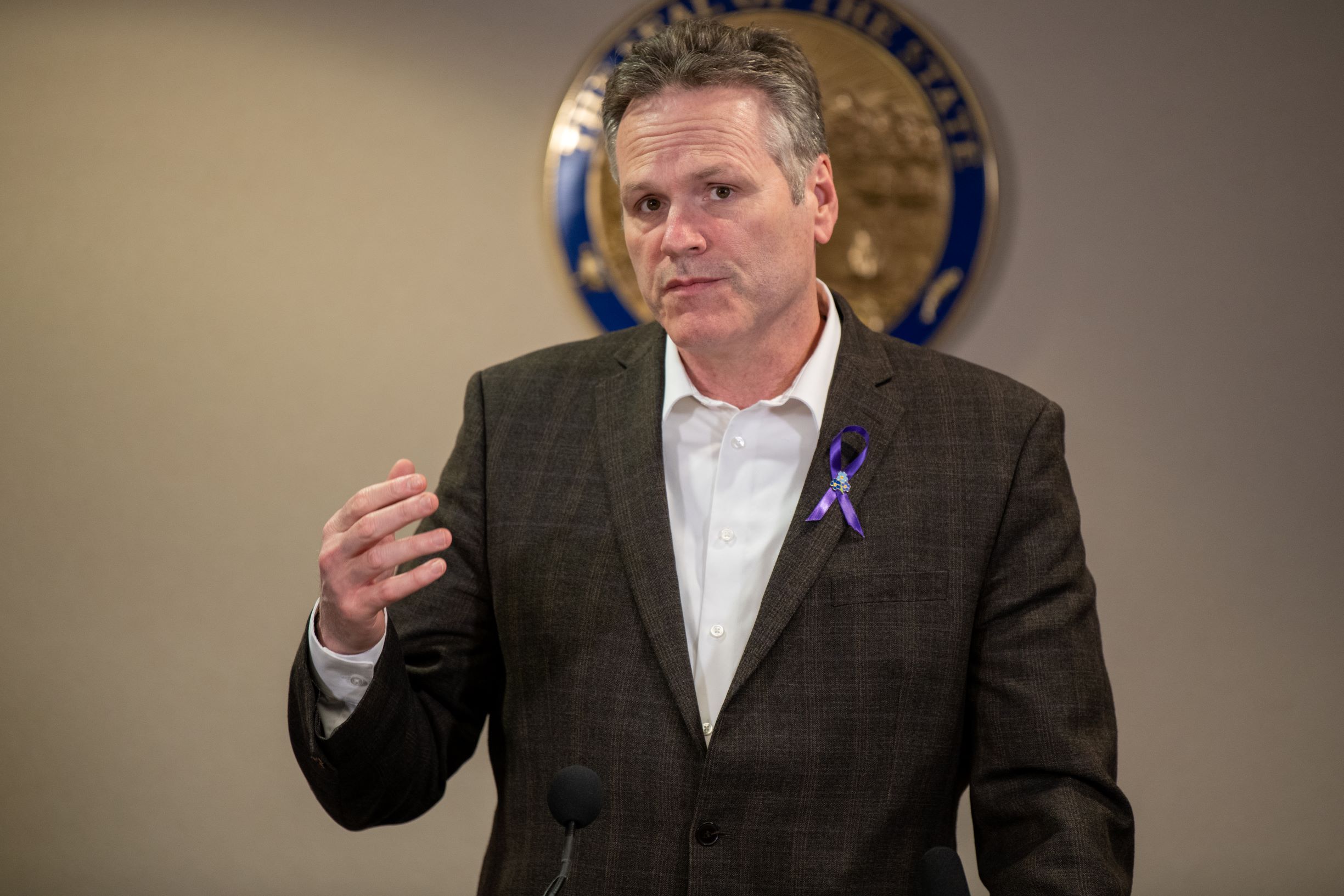
Gov. Mike Dunleavy on Friday signed the bill extending the state’s COVID-19 disaster declaration into law, allowing some Alaskans to receive up to $9 million more in food aid for April than what they would normally receive.
But after signing the bill, Dunleavy ended the disaster declaration.
Shortly before Dunleavy ended the declaration, state Health and Social Services Commissioner Adam Crum declared a more limited public health emergency under powers granted by the newly signed law.
Crum said the disaster declaration had become stigmatized.
“The word ‘disaster declaration’ became a bad word,” he said in a news briefing. “And this became something to where people automatically will have a visceral response to it. And when we really evaluated where we are at — is this the same situation we were in, in November and December? And it absolutely is not.”
The law retroactively ratifies disaster extensions Dunleavy issued during the fall and winter. And it retroactively extended the disaster from mid-February through Friday.
The new public health emergency gives legal support for the state continuing to receive funding from the federal government, including for the food aid provided to households in need. It protects health care providers and state workers from legal liability from damages suffered by clients who contracted COVID-19.
Crum said ending the disaster declaration will give Alaskans a “mental break.” And he said the new law gives the state the tools it needs to maintain its public health response.
“Just to continue this level of protection, while at the same time, letting Alaskans, letting tourists, letting the state know that we are in a recovery phase,” Crum said. “We’re going to continue to do this, but we’re still going to put forward our health recommendations. We’re still going to make sure that the necessary tools to continue the response are available.”
Crum also said the state met a federal threshold required for Alaskans to receive up to $9 million in pandemic food aid, slightly higher than an earlier state estimate of $8 million. The end-of-month deadline to receive this month’s benefits served as motivation for lawmakers to resolve their differences over the legislation.
The governor’s actions drew mixed responses from legislative leaders. House Speaker Louise Stutes, a Kodiak Republican, said in a statement that Dunleavy “opted for politics over policy and decided to gamble with the health of Alaskans and with our economic recovery.”
Stutes and other members of the House majority had supported requiring testing for air travelers arriving in Alaska. The testing mandate expired with the disaster declaration in February. But state public health officials said many travelers are complying with a state recommendation to be tested, and that 20 to 30 positive cases are being detected weekly from travelers.
Senate President Peter Micciche, a Soldotna Republican, praised Dunleavy’s decisions to both sign the bill and end the disaster declaration.
“I think where we are in Alaska — right now — this was the right move,” he said.
The emergency will remain in effect until Crum rescinds it, or the federal public health emergency ends.
